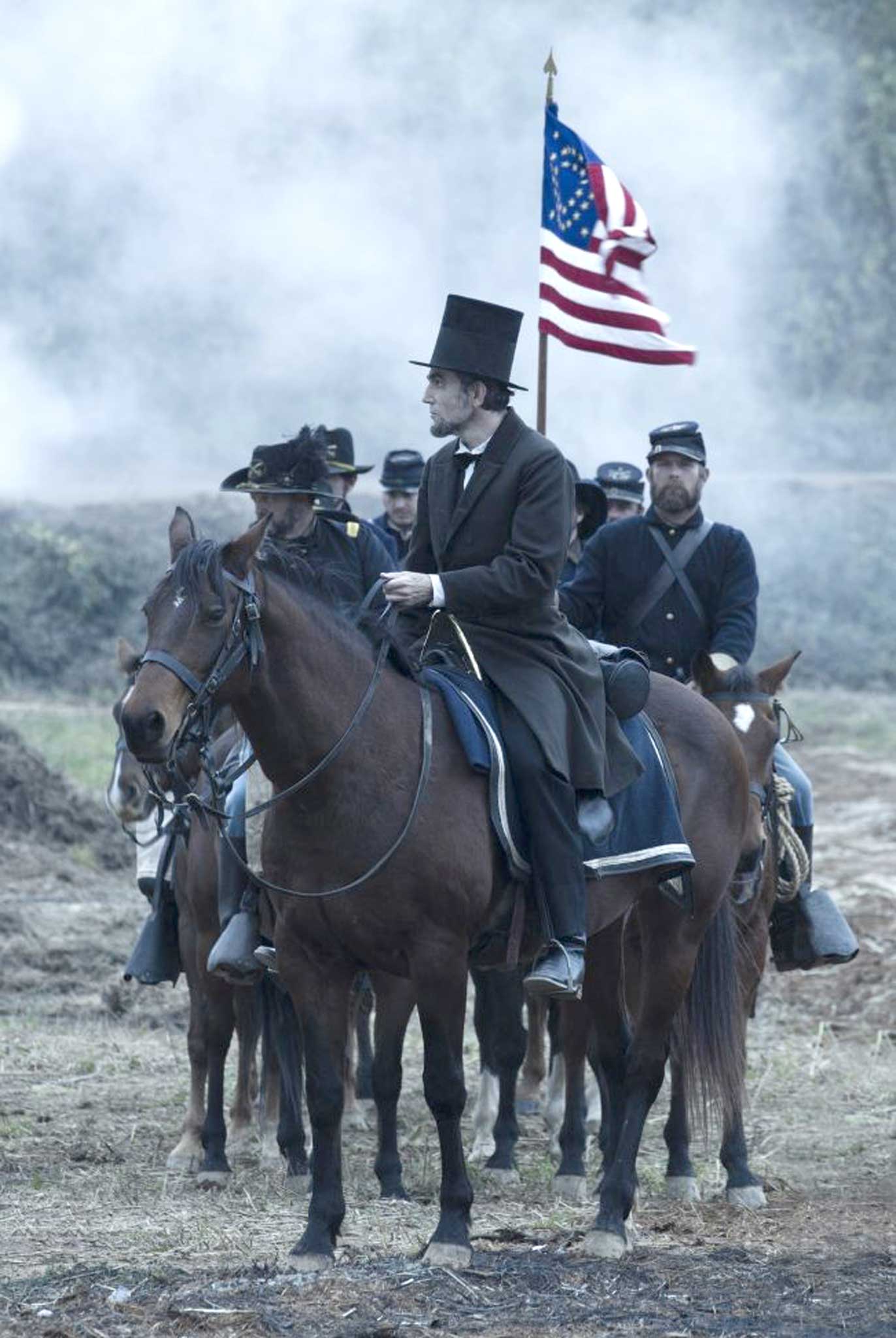Film review: Lincoln is a verbose encounter of the wordiest kind
(12A)

Your support helps us to tell the story
From reproductive rights to climate change to Big Tech, The Independent is on the ground when the story is developing. Whether it's investigating the financials of Elon Musk's pro-Trump PAC or producing our latest documentary, 'The A Word', which shines a light on the American women fighting for reproductive rights, we know how important it is to parse out the facts from the messaging.
At such a critical moment in US history, we need reporters on the ground. Your donation allows us to keep sending journalists to speak to both sides of the story.
The Independent is trusted by Americans across the entire political spectrum. And unlike many other quality news outlets, we choose not to lock Americans out of our reporting and analysis with paywalls. We believe quality journalism should be available to everyone, paid for by those who can afford it.
Your support makes all the difference.Steven Spielberg's recreation of the last four months in the life of the 16th President of the USA is sombre, sincere, handsome and deeply reverential. It's also one of the talkiest movies ever made. Tony Kushner's screenplay makes the issue of slavery its centrepiece, but sets it within such a long crossfire of backroom intrigues, political skulduggery and rhetorical bluster that actual drama looks ready to expire on the carpet.
One could praise Spielberg for his restraint, setting the tone with a hushed opening scene in which two black soldiers talk, in the aftermath of battle, to a seated figure, half in shadow, who turns out to be Mr Lincoln himself. It's a wonderful reveal, for we see at once both the homespun modesty of the man and the imposing grandeur of the President. If you watch Lincoln for nothing else you should watch it for Daniel Day-Lewis, whose chameleon magic somehow puts the living, breathing Abe right in front of us.
The lined, bewhiskered face is a replica, but it's in the subtler details that Day-Lewis seems to invoke his presence: the voice, a light, musing tenor (quite different from the expected rumble), and his awkward, halting gait are faithful to contemporary accounts. There's something mysteriously shrewd about him, too, even when he's at his homeliest and playing the genial storyteller – he seems to exist on a different wavelength to everyone else, including his wife, Mary (Sally Field, clucking for all she's worth), with whom he still grieves over the memory of a dead son. If Day-Lewis doesn't get the Best Actor Oscar I'll eat my stovepipe hat.
Once you've got over the brilliant impersonation, however, Lincoln is a (barely) animated history lesson, and a pious drag. Through the cigar smoke and the gloom you may discern some good performances, by David Strathairn as his Secretary of State William Seward, and by Tommy Lee Jones as the radical abolitionist Thaddeus Stevens, with a scowl and a wig to match. Joseph Gordon-Levitt puts fire into the older Lincoln son, Robert, determined against his parents' wishes to join up during the last gasp of the war against the Confederates. (There is one glimpse of brutal hand-to-hand fighting at the start, filmed with the same hallucinatory sense of horror that Spielberg's cinematographer Janusz Kaminski brought to Saving Private Ryan.) Kushner works up a little comic relief from a trio of scapegrace lobbyists, played by James Spader, John Hawkes and Tim Blake Nelson, who go about wrangling votes in support of the 13th Amendment, that is, the one to abolish slavery. But it's thin gruel to sustain us over two and a half hours.
Talkiness need not preclude drama; the film I most admired last year, Once Upon a Time in Anatolia, was also packed with scenes of bearded men talking quietly in darkened rooms, yet they crackled with tension and unarticulated feeling. The director Nuri Bilge Ceylan transformed what initially seemed a parochial crime story into a transcendent rumination on guilt and remorse. Lincoln, ostensibly about a man and his mission, is really about America giving itself a pat on the back for getting rid of slavery – just. A significant point of interest is the final reckoning in the House, and the historical shame of those states that voted against abolition – who would have guessed New Jersey to be one of the naysayers?
Spielberg's film will mean much to a nation that maintains a near-childlike reverence for the office of President, and it may well become one of their classroom standards. I don't think it will be embraced quite so gratefully by the rest of the world.
Join our commenting forum
Join thought-provoking conversations, follow other Independent readers and see their replies
Comments